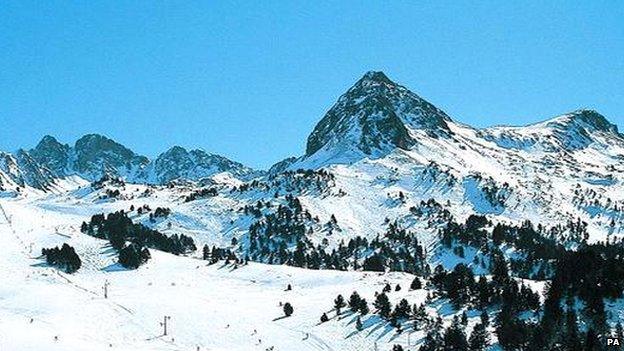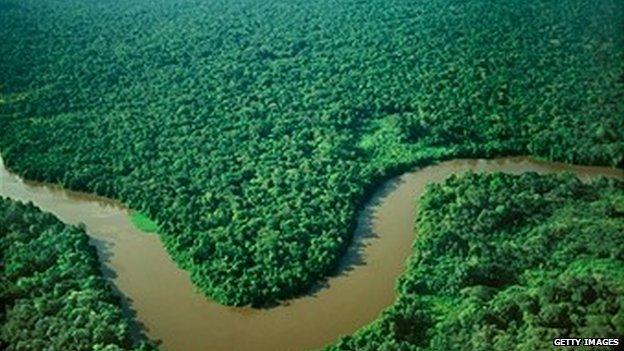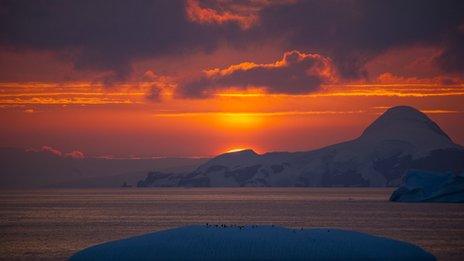Austria’s Alps hit by climate change
- Published

Austria, with its sensitive Alpine regions, has been particularly hard hit by climate change, a major survey says.
The Austrian Climate Change Assessment Report 2014, external says average temperatures in Austria have risen by almost 2C since 1880.
This is compared with a global rise of 0.85C in the same period.
The document says that the changes in temperature are mainly man-made and caused by "emissions of greenhouse gases".
The report was put together by more than 200 scientists and presented in Vienna by Austrian Environment Minister Andrae Rupprechter.
Rapid action call
One of the scientists behind the document, Helga Kromp-Kolb from the University of Natural Resources and Life Sciences in Vienna, told Austria's ORF TV that the above-average increases in temperature were due to Austria's landlocked position and its sensitive Alpine regions.
"We are a continental area, which gives us a higher rise in temperature and… we are in a mountain region where the decrease in snow cover intensifies the warming process", she said.
The report says that in the last 130 years, sunshine in the Alps has increased by approximately 20%.
It says that snow cover, particularly at mid-altitude elevations, has declined, and that there has been a clear reduction in the surface of Austria's glaciers.
Rises in temperature, it says, have accelerated since 1980.
"Cold nights have become rarer, but hot days have become more common."
The report warns that "without increased efforts to adapt to climate change, Austria's vulnerability will increase", particularly in areas such as agriculture, forestry and winter tourism.
"Compared with destinations where natural snow is plentiful, many Austrian ski areas are threatened by the increasing costs of snowmaking."
It warns that if nothing is done, temperatures could rise by 3.5% by 2100.
Non-governmental organisations in Austria have called for rapid action to be taken.
The "report shows that Austria is heavily affected by climate change and the damage will continue to increase if decisive action is not taken," environmental organisations Global 2000, Greenpeace and WWF said in a joint press release.
- Published20 September 2013
- Published14 September 2014

- Published9 September 2014

- Published1 September 2014
